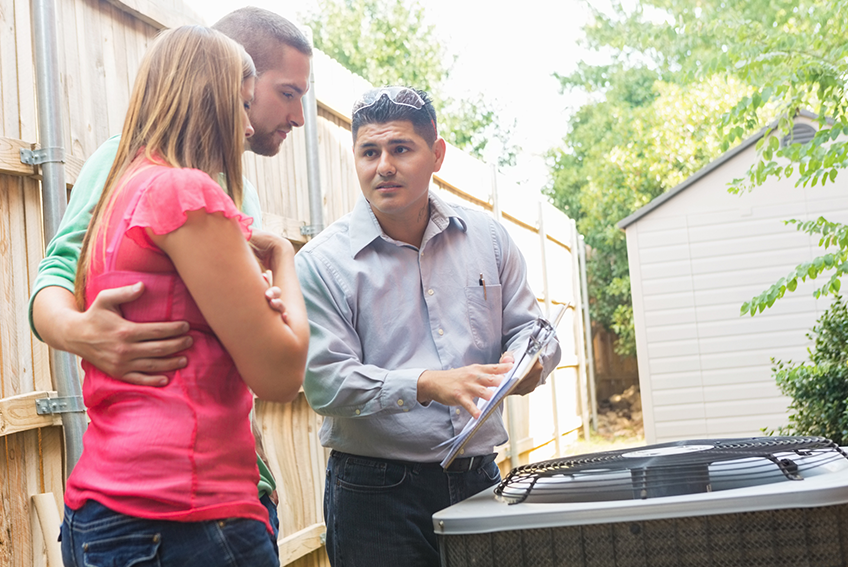Are New HVAC Systems Less Reliable Than Old Ones?
It seems like you used to be able to buy an HVAC system and park it in the yard for 25 years and never have to worry about it. Now it seems that systems only last 10-12 years and have way more problems. Is this perception or reality?

There are several reasons why new systems don’t last like the old ones. It used to be you could pick up any piece of quality equipment by Carrier or Trane throw it in your yard and forget about it for 20 years. It’s not like that anymore. Without proper installation and maintenance your equipment might fail in 10-12 years. But manufacturing should be better now, why doesn’t the equipment last as long? There are several reasons:
- Higher Pressures — Due to EPA regulations the original R22 refrigerant is being phased out and replaced primarily with 410A. This 410A requires operating pressures that are 60-70% higher than R22. This means tolerances must be greater in the compressor to create the higher pressure and all other parts of the refrigeration circuit including the coils must withstand the higher pressures.
- More Surface Area — In order to meet increasing efficiency standards the coil surface area has increased dramatically. The basic principles of refrigeration haven’t changed much so one of the major ways manufacturers have increased efficiency is to increase the surface areas which increases the efficiency of heat exchange with the air. Of course, the more surface area you have, the more opportunity you have for failure.
- Thinner Material — Just like more surface area, thinner materials are used to increase efficiency. Combined with the higher surface area and increased pressures, this is often a recipe for shortened life.
- Volatile Organic Compounds (VOC’s) — Our indoor air has become a toxic stew of chemicals and VOC’s. From hairspray to new carpets and furniture, modern life is filled with nasty stuff that becomes part of our air. This is bad for our health, but it’s also bad for your HVAC equipment. These VOC’s become trapped in your indoor coil (evaporator) during the summer when the evaporator is damp from the removal of humidity from the air. The mixture of the VOC’s and moisture create an acidic reaction that can cause a reaction in the copper or aluminum metals that make up the refrigeration components.
- Increased Complexity — The more complex a mechanical system is, the more likely it is to fail (that’s a general rule of thumb). Many modern systems have features such as variable compressors, variable fans, an increased number of sensors, and more computer parts. This often increases the technical training level to work on the systems and increases the possibility of failure.
- Overseas Manufacturing — It’s easy to point to poor manufacturing for reliability issues. It’s possible that’s the issue, but it’s probably more related to cost. Most consumers say they want reliable products, but they really want inexpensive products so that’s what manufacturers produce. By theory, robotics and computers as well as other technology have improved the quality of the manufacturing process but the focus on cost reductions probably outweighs those advancements.
All of these things can be mitigated by a proper maintenance plan. One of the key items that will improve the life of your system is regular flushing of the coils to remove the acid from the surface as well as a thorough inspection and maintenance of mechanical and electronic parts. Comfort Monster has developed MonsterCare™ specifically to extend the life and efficiency of modern HVAC equipment. We are so confident in our service, we offer MonsterShield ™ free with regular MonsterCare service and the completion of necessary preventive repairs. Learn more about Comfort Monster HVAC maintenance services..



